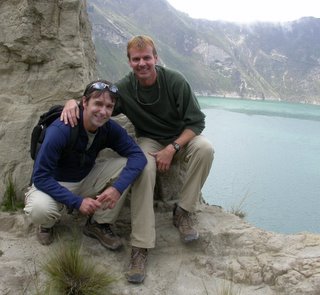Condi Rice profile
From Altantic "Rice’s detractors, and even some of her close friends, see her worldview, which is both intellectually coherent and heartfelt, as deterministic and lacking any real appreciation for the influence of local factors on big historical events. A common term for the core of her thought among her colleagues, past and present, is “the theology,” a reference to her bedrock faith in the likelihood, or inevitability, of progressive historical change. Her views have evolved since she witnessed firsthand the end of the Cold War.
“Back then, Condi Rice was much more of a realist,” one former senior Bush administration official told me. “Some of those traits are still there, but she’s gotten some religion. I don’t mean religion in the evangelical sense. I mean that view of life and optimism and larger forces, and the contest of good and evil, and the idea that time is on our side. It fits with a notion of historical inevitability, and a notion of American progress or a special mission in the world.”
Maybe a naive view of democracy and freedom was created by Eastern Europe's quick conversion to liberal democracy, not taking into account its deep roots in pre-WW2 Capitalism and the Enlightenment.
"I asked [Kissenger] why the answers we draw from our own historical experience so often prove destructive to other countries. He rested his famous jowls on the collar of his blue shirt and began to rumble. “We’ve never had to deal with contingent issues in the sense that our problems have had absolute answers, or at least answers we considered absolute,” he said. “So with very little preparation, most of our problems have proved soluble. They have always yielded to the application of resources and ingenuity, and to finite time scales. Much of this is not true in the rest of the world.”
“Back then, Condi Rice was much more of a realist,” one former senior Bush administration official told me. “Some of those traits are still there, but she’s gotten some religion. I don’t mean religion in the evangelical sense. I mean that view of life and optimism and larger forces, and the contest of good and evil, and the idea that time is on our side. It fits with a notion of historical inevitability, and a notion of American progress or a special mission in the world.”
Maybe a naive view of democracy and freedom was created by Eastern Europe's quick conversion to liberal democracy, not taking into account its deep roots in pre-WW2 Capitalism and the Enlightenment.
"I asked [Kissenger] why the answers we draw from our own historical experience so often prove destructive to other countries. He rested his famous jowls on the collar of his blue shirt and began to rumble. “We’ve never had to deal with contingent issues in the sense that our problems have had absolute answers, or at least answers we considered absolute,” he said. “So with very little preparation, most of our problems have proved soluble. They have always yielded to the application of resources and ingenuity, and to finite time scales. Much of this is not true in the rest of the world.”


<< Home